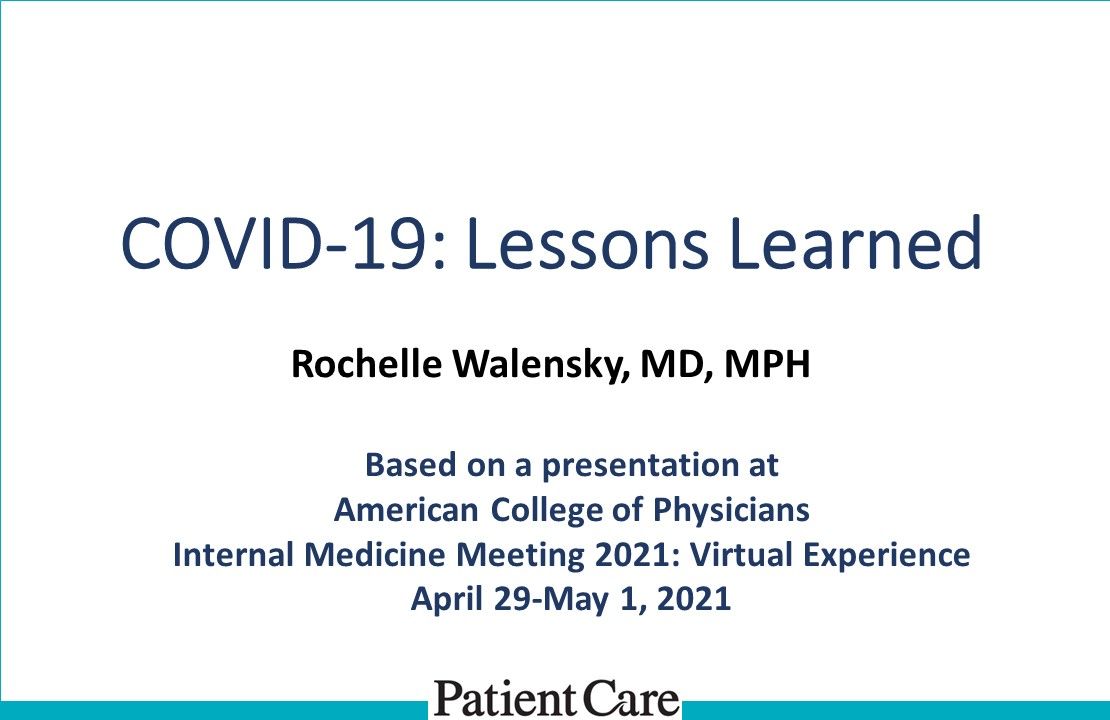Latest Conference Articles

ACC.21: Survival After MI Far Worse for Black Patients from Disadvantaged Neighborhoods
May 14th 2021
ACC.21: Black patients from disadvantaged neighborhoods were found almost 20% more likely to die within 5 years of MI than white patients from well-resourced ones in a new study.

ATS 2021: Tezepelumab Reduces Exacerbations in Oral Corticosteroid-dependent Patients with Severe Asthma
May 13th 2021
ATS 2021: In a subgroup of oral corticosteroid-dependent patients with severe asthma from the newly released NAVIGATOR study, tezepelumab reduced exacerbations and improved lung function.

ATS.2021: Study Finds Odds of Uncontrolled Asthma Increase with Higher Pandemic-related Stress
May 13th 2021
ATS.2021: Odds of uncontrolled asthma in response to pandemic-related stress increased in a significant dose-response manner among adult respondents to a new survey.

ACC.21: Prediabetes Significantly Increases Risk for MACE, According to New Findings
May 13th 2021
ACC.21: Findings from a study released in advance of the ACC annual meeting suggest that prediabetes confers nearly twice the risk of major cardiovascular events vs normoglycemia.

ATS.2021: At-risk Asthma Phenotypes Defined Using 4 Simple Metrics
May 12th 2021
ATS.2021. Study authors categorized asthma patients using age at onset, T2 biomarkers, and IL-6 levels, creating 12 phenotypes for additional study.

ATS 2021: Severe COPD Exacerbations May be Associated with Increased Mortality Risk
May 12th 2021
ATS 2021: The risk of morbidity and death in patients with COPD increases among those with moderate exacerbation, and even more so for severe exacerbation, new research suggests.

ATS 2021: Researchers Project Burden of COPD Will be Worse in 2050, Especially in US
May 11th 2021
In an abstract being presenting at the upcoming ATS 2021 International Conference, researchers estimate that by 2050 the US will lead the Americas in prevalence of COPD.

Black Women at Risk Early in Life for Future Cardiovascular Disease
May 11th 2021
ACC.21: High rates of obesity, hypertension, and hyperlipidemia found in Black women in their 20s and 30s are of significant concern, says the author of a study to be presented at the ACC meeting.

ATS 2021: Triple Combination Therapy May Benefit “Wide Spectrum” of Patients with COPD
May 11th 2021
American Thoracic Society 2021 International Conference: In a subset of patients from the ETHOS study, triple combination therapy was found beneficial for those with moderate COPD.

ACP: Lessons Learned during COVID-19 Pandemic
May 3rd 2021
CDC Director Rochelle Walensky, MD MPH, was a featured presenter at the recent ACP Internal Medicine Meeting 2021: Virtual Experience, where she spoke about lessons learned during COVID-19.
